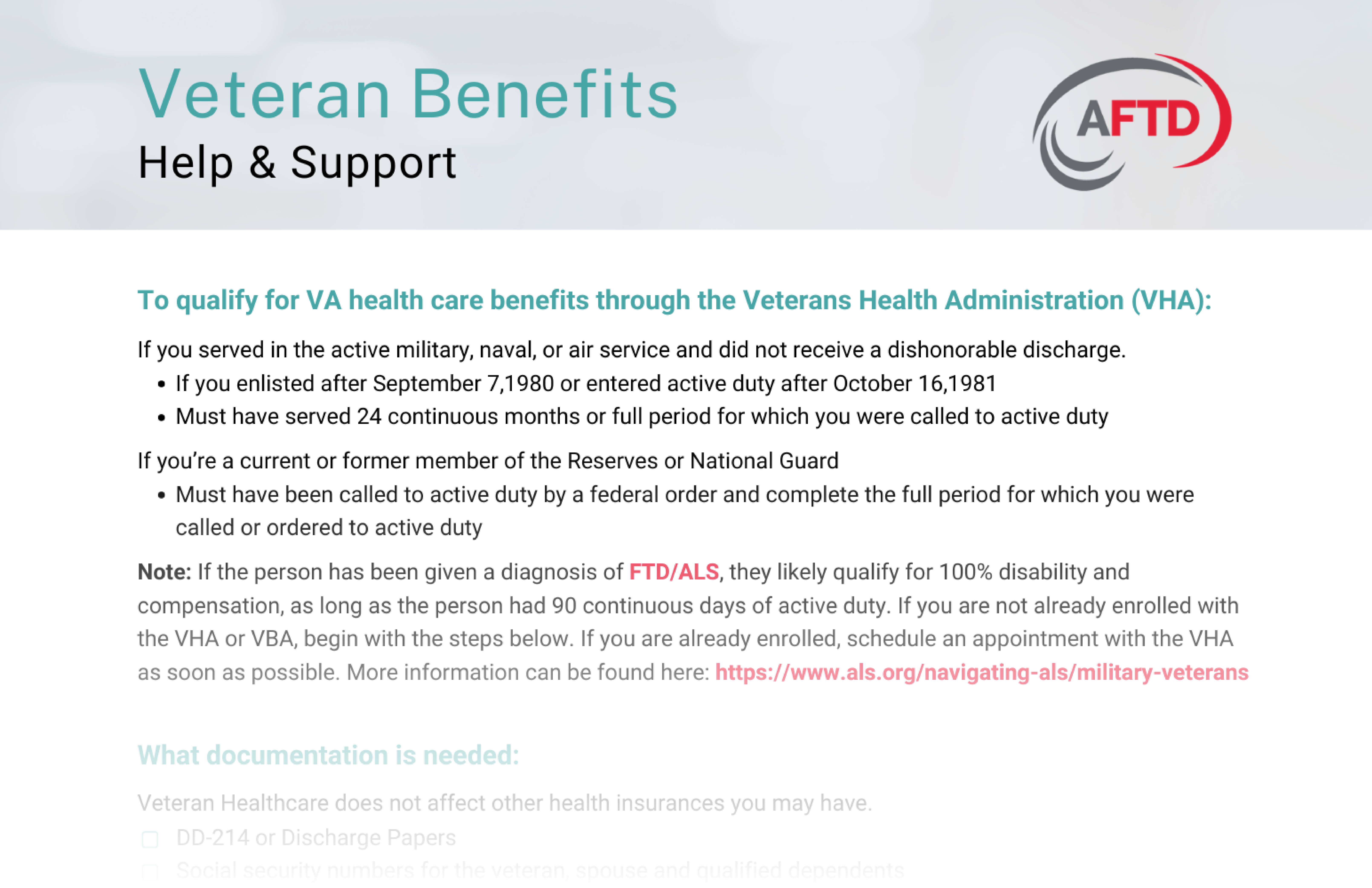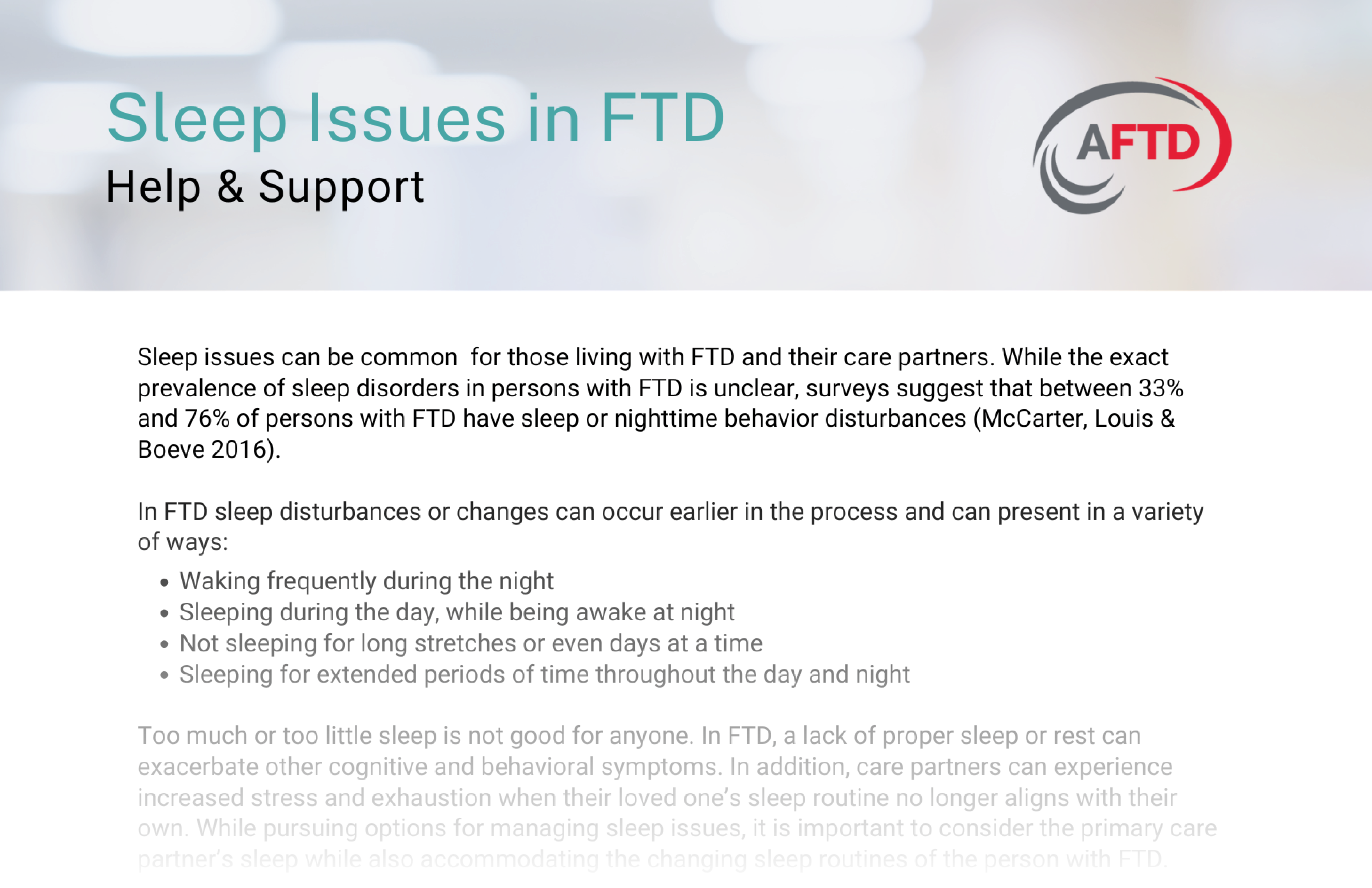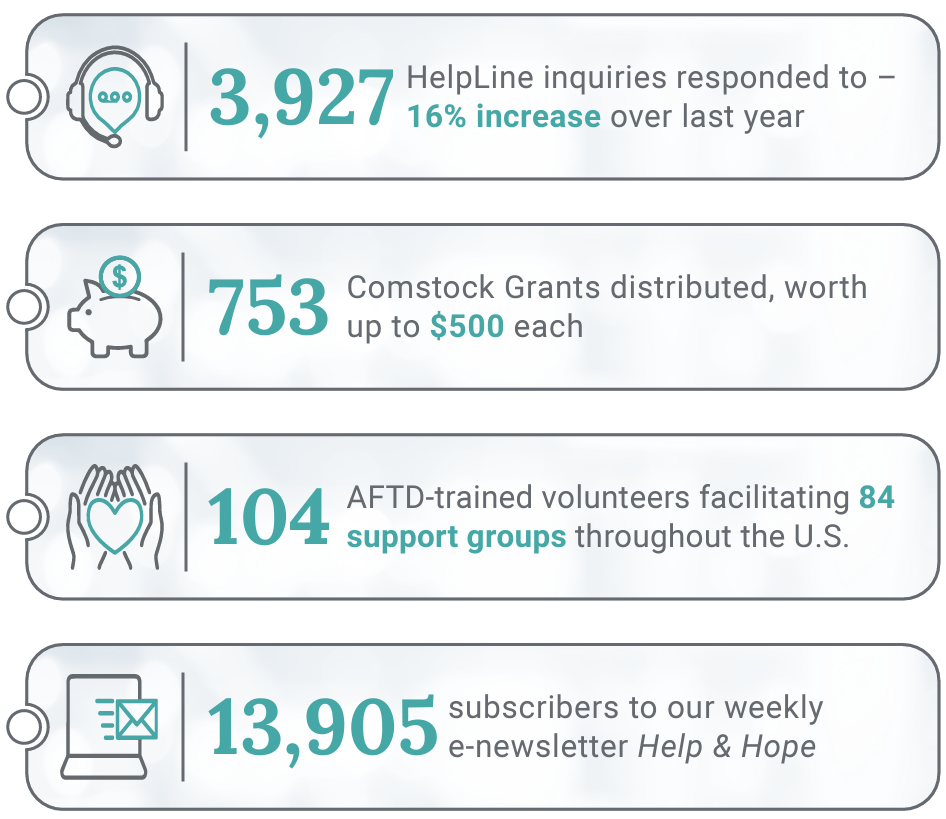
Support
When a former caregiver founded AFTD, a primary focus was supporting others affected. Today, we continue this important work to educate and empower people at every stage of the FTD journey.
AFTD’s HelpLine often serves as the first point of contact to learn about FTD. Three social workers and a genetic counselor respond to inquiries and offer options for care and support, with translation services available for more than 200 languages to ensure help is available to all who need it. In October 2023, we hosted the webinar “Answering Questions and Providing Support: A Q&A with AFTD HelpLine Staff,” which is available on our HelpLine web page that also features our most popular resources and a list of FAQs.
Our Comstock Grant program provides direct assistance to persons diagnosed or current care partners and caregivers to alleviate the financial burden of a diagnosis. Funds are used for professional caregivers, enrollment in an adult day care program, and supplies like shoes, technology, games, or art materials to improve the quality of life of persons diagnosed, or for care partners or caregivers to access self-care services. Grants also assist with travel to the AFTD Education Conference or other FTD-related educational events.
New resources include a fact sheet for veterans to find support options, a checklist to use when considering long-term care facilities, and a guide for persons diagnosed and care partners or caregivers experiencing sleep challenges.
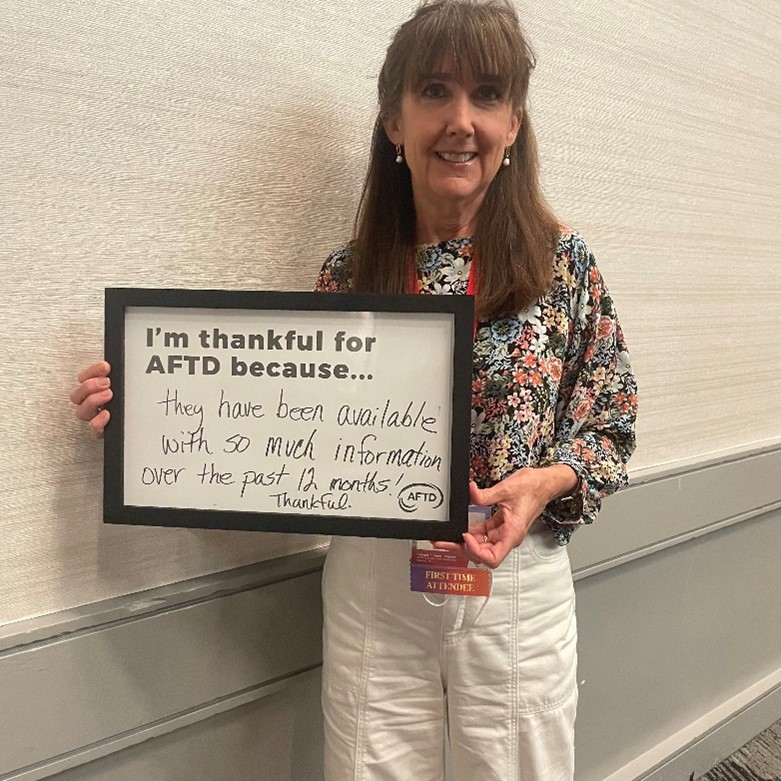
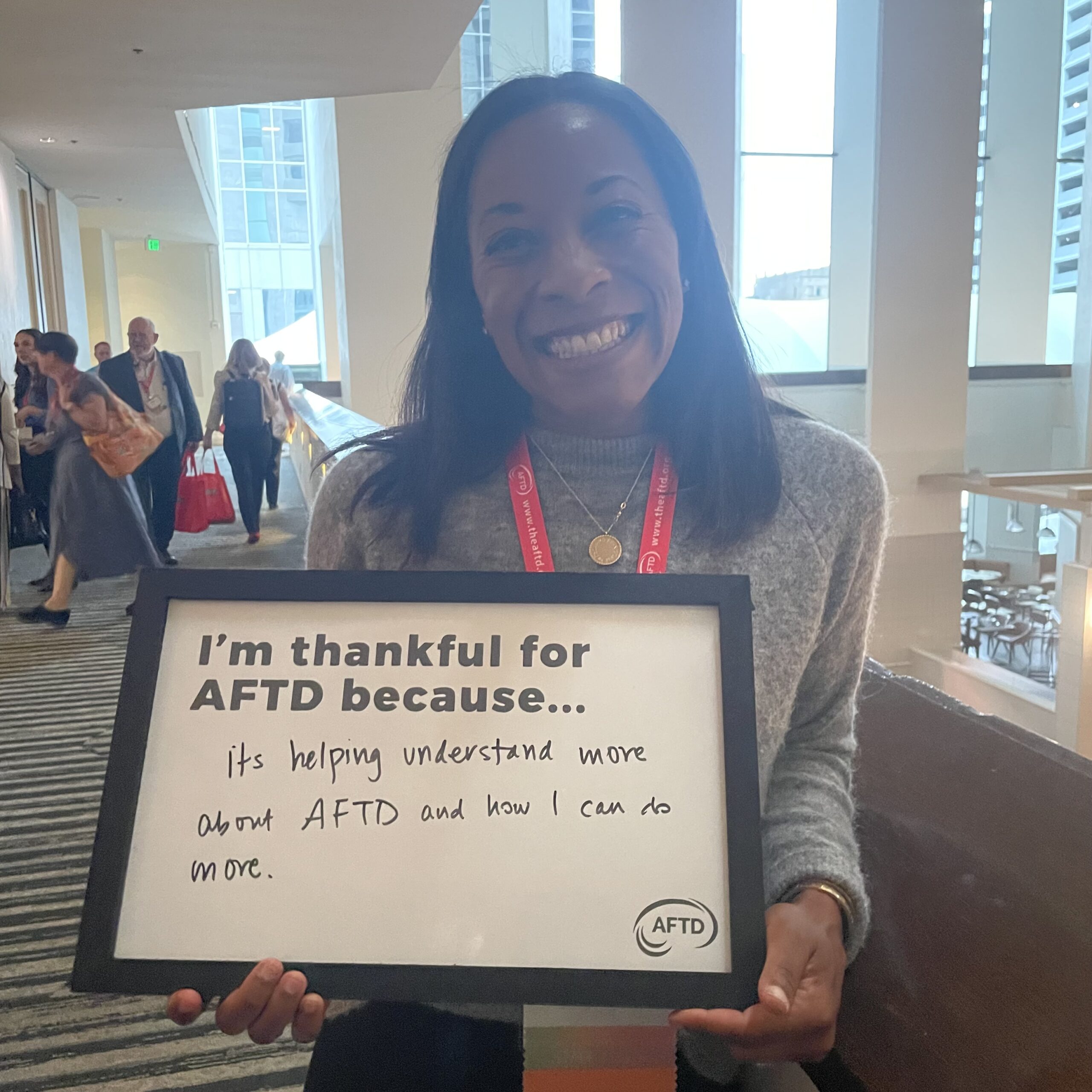
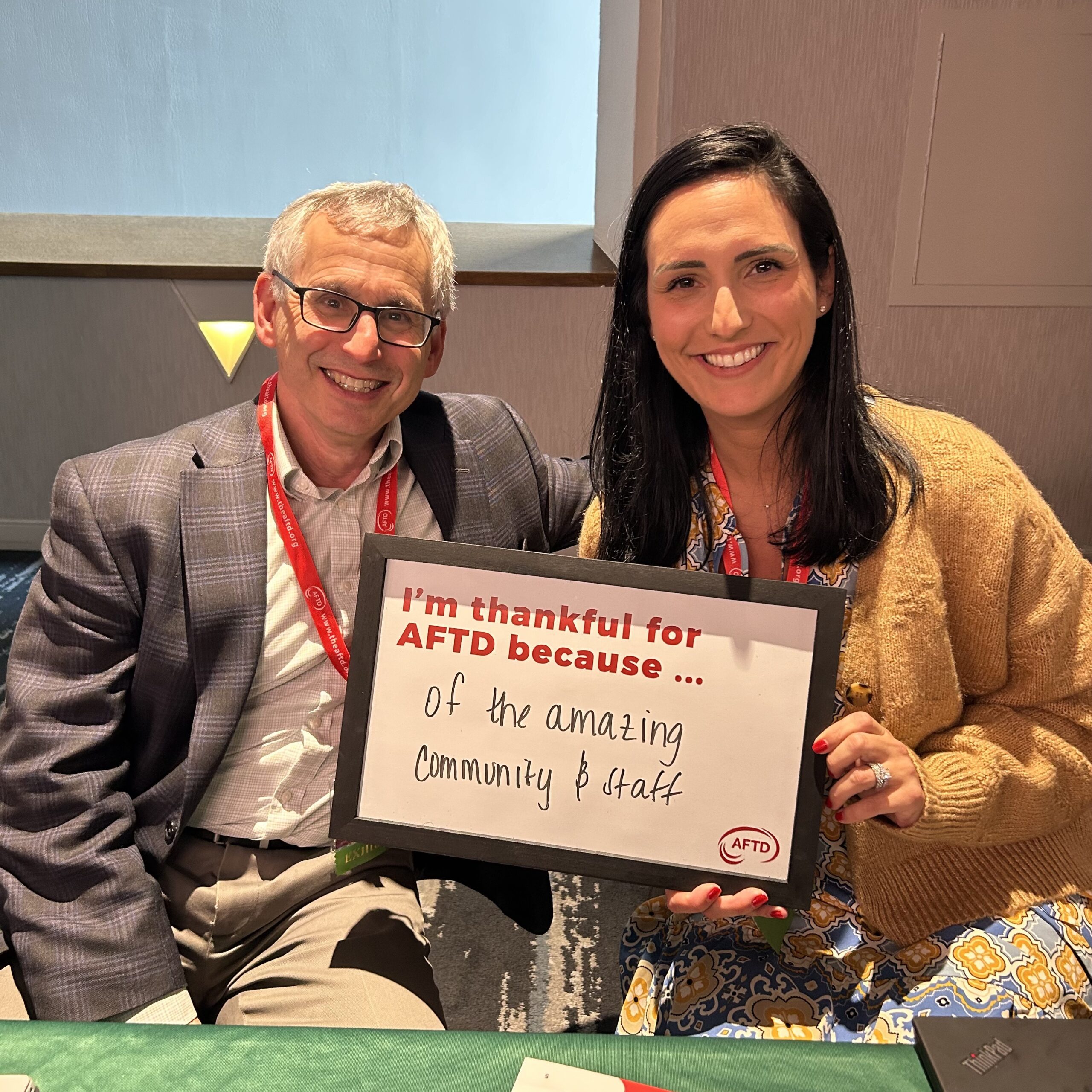
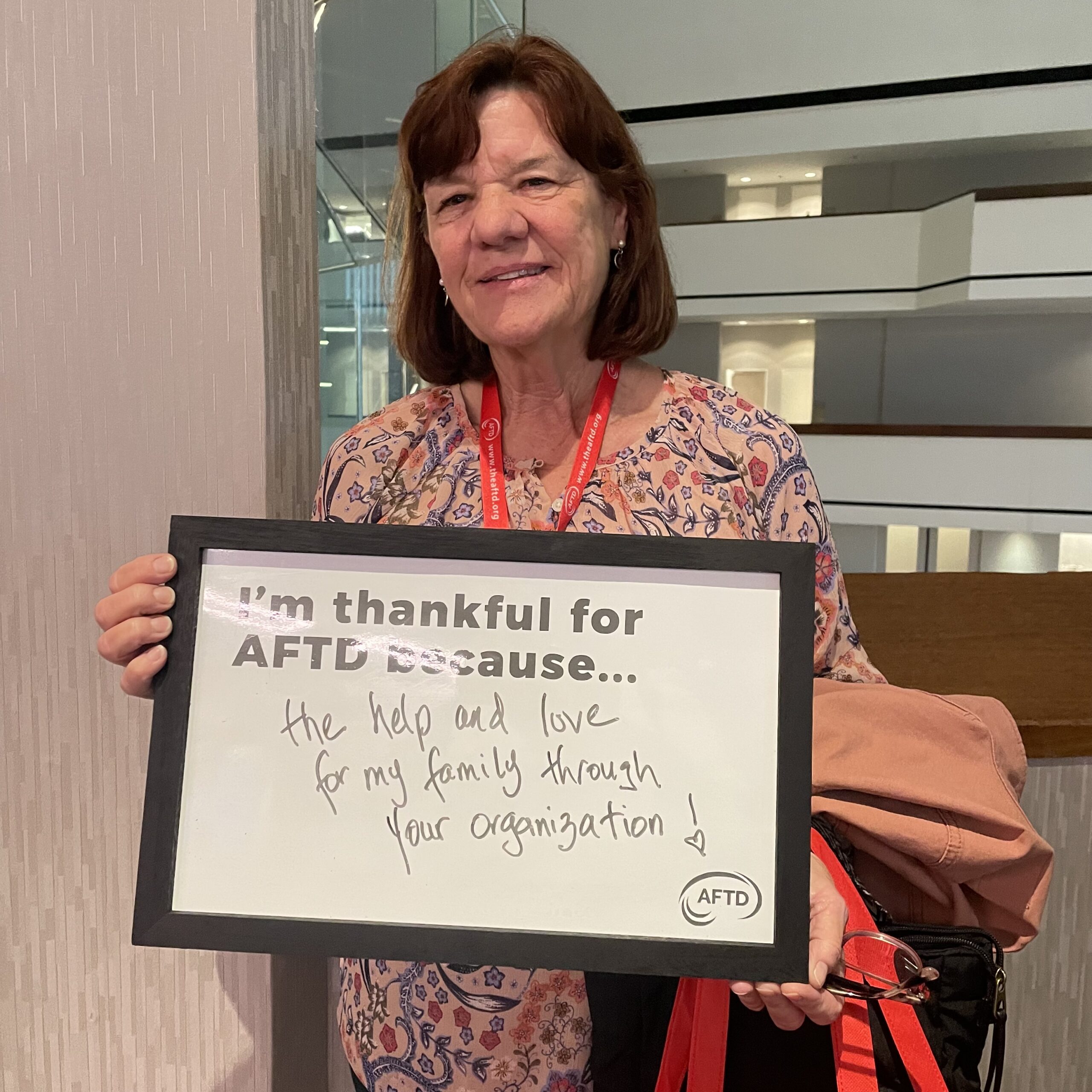
Attendees at our 2024 Education Conference shared how AFTD has supported them on their FTD journey.
Led by trained and dedicated AFTD volunteers, support groups – offered in person and virtually – are a vital resource for care partners and caregivers, family members, and persons diagnosed. At the local, regional, and national levels, they provide a safe environment to share stories, learn ways to advocate, and gain much-needed coping skills and strategies to navigate a diagnosis.
Last year, we launched several new options. Living Well with PPA, a six-week online group, gives people newly diagnosed with primary progressive aphasia a space to cope with their diagnosis together. Each weekly discussion, guided by a clinical psychology PhD student and a support group volunteer, provides an outlet to learn about PPA while finding support from others living with this FTD disorder.
Approximately 40 percent of FTD cases are familial, a subset of which is known to be genetic. In early 2024, we established a group for People at Confirmed Genetic Risk, for those who are asymptomatic but have positive predictive genetic results with a known risk of developing FTD. A second option – the Familial FTD Peer Support Group – was launched for people with a family history of FTD who have not completed predictive testing or who choose not to learn their status.


